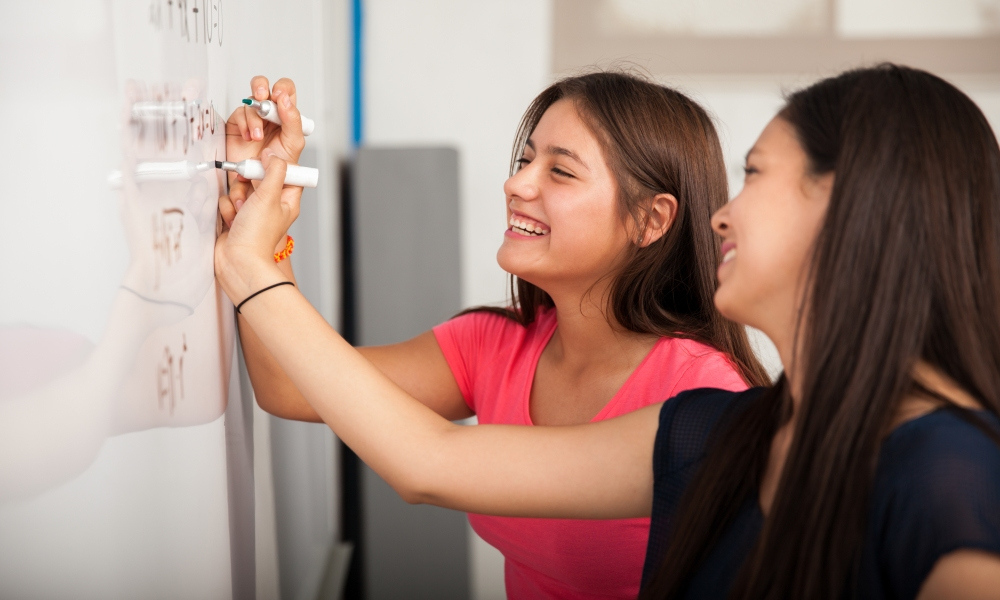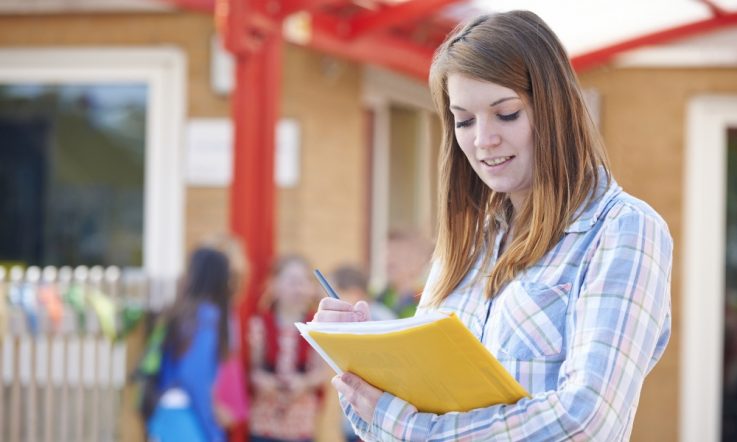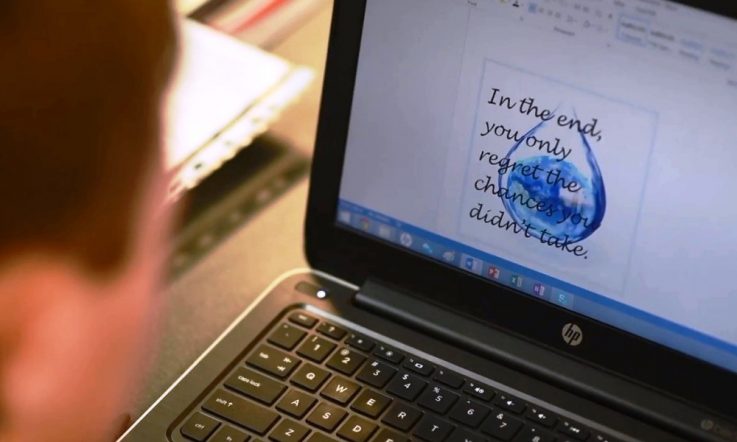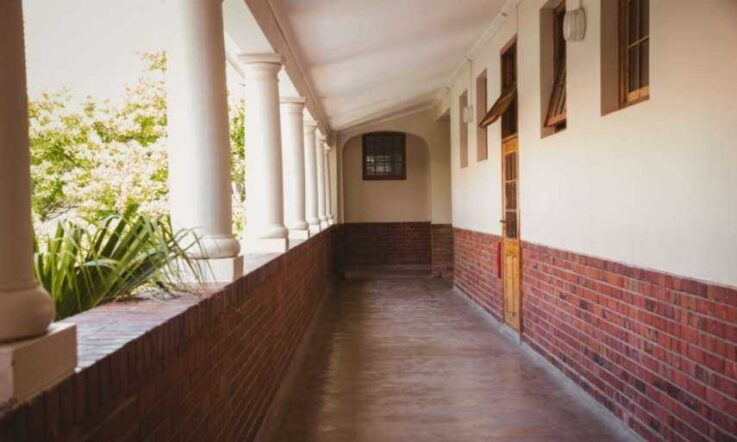Thank you for downloading Episode 22 of The Research Files podcast series, brought to you by Teacher magazine – I'm Jo Earp.
This episode marks a milestone for Teacher, it's our 50th podcast. Over the last two years or so we've shared research and practical advice for the classroom through our series on School Improvement, Action Research, Teaching Methods, Global Education and, of course, The Research Files – and we've thrown in a few special episodes for good measure! Today we're talking behaviour. A new study by members of the Violence Research Centre at the University of Cambridge and colleagues from Switzerland and Canada has found that positive teacher-student relationships when the student is around 10-years-old can significantly reduce problem classroom behaviours, and the effects last for up to four years. Lead author Dr Ingrid Obsuth joined me from London to talk about the results.
Jo Earp: Now, before we talk about the main findings I want to go back a step – what was the aim of the research?
Ingrid Obsuth: Our goal was to show that teacher-student relationships matter, in relation to behaviour specifically. While we know from other research that teacher-student relationships are important for younger children in relation to learning and student development, much less was known about the specific effects on behaviours and even more specifically in adolescence.
Of course, like in many situations, we know that behaviours influence relationships but we also know that relationships influence behaviours. So, what we wanted to really show was the relationship to behaviour link is important in order to be able to emphasise that interventions on that level are important to influence behaviours in schools.
JE: You've mentioned there that's within a school setting. What did it actually involve – I understand you used data that already existed from Switzerland?
IO: The study was part of The Zurich Project on the Social Development of Children and Youth. This is a longitudinal study which follows approximately 1600 children who were first assessed at age seven and they are now aged 17. So, it's a so-called ‘cohort study' in which [they] assessed everyone who entered elementary/primary school in the Year 2004. And information has been collected, as I mentioned, for the past 12 years, from children who are now teens, their teachers and in the first four years information was also available from parents – so this is also included in the study.
We had around 1000 kids for whom we had information available on all the variables we were interested in in this specific study. What we did is we looked at reports of their quality of relationships with the teacher at aged around 10 years and then … we managed to find pairs of children who differed on their quality of relationship to the teacher. So, we had pairs of kids – one with a better and one with a worse relationship with the teacher – and we matched them on over 100 characteristics, which we measured prior to the assessment of the teacher-student relationship to make sure that what we then find in relation to outcomes can be attributed to the change in the teacher-student relationship.
In this specific study the outcomes we looked at were prosocial behaviour, aggressive behaviour and oppositionally-defiant behaviour. We didn't look at wellbeing beyond that, but this is something that we could look at in further follow-up studies – we could look at how this impacts on their success in life, their overall wellbeing and other aspects of their development.
JE: And, those characteristics, what kinds of things are we talking about? Things like aggressiveness, cooperation?
IO: Yeah, so that's actually an important question because what we wanted to control further, to isolate this effect of the teacher-student relationship, is other types of behaviours and other types of experiences which could, theoretically, also have an impact on the behaviours we were interested in. So, what we looked at and what we matched the two kids on were things like previous aggressive behaviour, previous oppositional behaviour, different parenting styles, their level of pro-sociality, their exposure to bullying at school, their approach to the school, their motivation to learning and other variables. And they were assessed from all three informants – from the child, the teacher reports and the parent reports.
Importantly, we also matched them on their previous teacher-student relationship. So, in other words, we controlled for that to really only measure the difference between the teacher-student relationship at age 10 to 11.
JE: So, onto the key findings then. The full study has been published in the Journal of Youth And Adolescence, and we'll put the links to that on our site with this podcast, but can you take us through the ‘highlights' if you like?
IO: The key findings were that, as we predicted, the students with better relationships (self-reported and teacher-reported) versus those with worse relationships were more prosocial and they were also less aggressive and less oppositional, or showed less oppositional behaviour.
Interestingly, with respect to aggression the effects lasted up to four years following the teacher relationship assessment – so this is a rather lasting effect.
I think the other interesting finding is that the children's reports were a stronger predictor of these effects and a stronger predictor of longer-term effects, which is perhaps not surprising because it the child who is perceiving the relationship and then how they are seeing the relationship is impacting on their behaviours.
JE: One thing that has grabbed the headlines, if I can put it that way, you've argued in the paper I think that the results suggest that a positive teacher-student relationship can be as effective as anti-bullying interventions at improving wellbeing. Can you expand on that a little?
IO: The bullying programs that are reported about in other published work are reporting certain effect sizes. So, they're reporting changes in behaviours and wellbeing of a certain effect [size]. And, what we find in our study, based on the teacher-student relationship, the effects on the changes in behaviour – so, the difference in behaviour between those kids who have a better versus worse relationship – are comparable to those that they find in the studies where they look at bullying interventions.
So, what we're suggesting is while those programs are also very important and they show good effects on changing behaviours or other outcomes, teacher-student relationships are also important and could achieve similar effects through building positive relationships.
JE: So, quite big implications then – what are the implications of this research then. I'm thinking for school leaders and teachers on the ground, what could they be doing in light of your findings?
IO: I think the greatest implication is that the relationships between students and teachers really do matter and they matter beyond just young children, they're important in adolescence and they have some lasting impact. I think they are worthy of investment in supporting teachers in being able to do this.
Some of the things that one would want to focus on in terms of building positive relationships are some things that we find, for example, in attachment research which talks about parent-child relationships and how those change through development. For example, in adolescence, what you want to emphasise is that they are moving towards independence and thinking on their own and being able to make their own decisions, but also providing them that necessary support. So, finding the balance of building that really supportive, but also encouraging of independence type of relationship.
Of course, what one would want to see is leadership which would support such relationships and also, beyond that, schools which would support those types of relationships and environments. So that it's not just a dyad that is building this supportive relationship but also a school that is full of positive energy and the kids are really wanting to go there and in effect really moving from punitive disciplinary practices perhaps to more relational (so to speak) discipline practices but in a positive direction. Supporting kids through positive relationships as opposed to punishing them. From exclusion, which is quite popular here still [in the UK], excluding kids from school when they misbehave, moving from exclusion to inclusion and thinking about how can we help these kids through building better environments and better relationships?
JE: Finally then, what are the next steps for you in terms of research in this area, or indeed other academics looking at this issue?
IO: For us, and we touched up this a little bit, is potentially looking at other outcomes. So, what else is really influenced by these teacher-student relationships at this point but also in further follow-ups. So, following these kids as they grow and enter into young adulthood and adulthood and whether these relationships are further impacting on their development and wellbeing as we talked about.
I do also think that we need to understand a little bit more about the process of these positive relationships. While we know that a balance is important, that young people want to be supported and that they want to feel connected to their school and to their teacher, there's much more that needs to be understood about this and we can do this both through administering questionnaires but probably better yet actually talking to teachers and young people and asking them specifically, in specific schools, in specific neighbourhoods: ‘What would make for a better relationship and a better environment where you would want to spend time, learn and also learn some good, positive behaviour skills?'
JE: I suppose actually, at a small scale level, that could be something that schools could look at doing now within their own contexts. Educators could look at carrying out their own surveys on this matter?
IO: Yeah, absolutely. I think schools can do a lot about this and asking their own staff – what are the obstacles, what are some positive experiences some teachers may have but others may not have and learn from each other within their own specific contexts.
JE: That's great. Well, Dr Ingrid Obsuth, we'll watch those developments with interest in the future. But, for now, thanks ever so much for sharing your work with The Research Files.
You've been listening to an episode of The Research Files, from Teacher magazine. To download all of our podcasts for free, visit acer.ac/teacheritunes or www.soundcloud.com/teacher-acer. To find out more about the research discussed in this podcast, and to access the latest articles, videos and infographics visit www.teachermagazine.com.au
Research links
Obsuth, I., Murray, A.L., Malti, T. et al. (2016). A Non-bipartite Propensity Score Analysis of the Effects of Teacher–Student Relationships on Adolescent Problem and Prosocial Behavior. Journal of Youth and Adolescence. doi:10.1007/s10964-016-0534-y
In your experience, what have been the obstacles to building positive relationships with students?
Has a colleague been successful in overcoming an obstacle that you’ve faced? Can you learn from their experience or can you share your experiences with others to help them?
The lead author of this study says a good starting point is to ask students what would make for better teacher-student relationships and a better learning environment. How could you go about researching this in your own school or classroom context?



